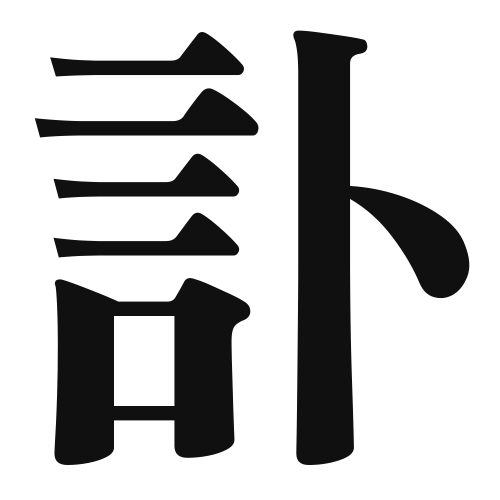1. Overview of Meaning
The kanji “訃” (fu) means “death notice” or “obituary.” It is used to convey the news of someone’s passing, often in a formal context.
2. Formation and Radical
Formation of the Kanji: The kanji “訃” is a phonetic compound (形声文字) that combines the radical for “speech” (言) with the phonetic component “付” (fu), which contributes to its pronunciation.
Radical: The radical of “訃” is 言 (gen), which relates to speech or words, indicating that the kanji is associated with communication, particularly in the context of conveying important news.
3. Examples of Usage
Common Words and Phrases:
- 訃報 (ふほう, fuhō) – death notice
- 訃告 (ふこく, fukoku) – obituary
Example Sentence in Daily Conversation:
「彼の訃報を聞いて、とても驚きました。」 (I was very surprised to hear his death notice.)
4. Synonyms and Antonyms
Similar Kanji:
- 死 (し, shi) – death (more general term)
- 亡 (ぼう, bō) – deceased (often used in a more respectful context)
Antonyms:
- 生 (せい, sei) – life
- 生存 (せいぞん, seizon) – existence or survival
5. Cultural and Historical Background
Relation to Japanese Culture: In Japan, the announcement of a death is a significant event, often marked by formal rituals and ceremonies. The kanji “訃” is commonly used in formal announcements and is associated with respect for the deceased.
Proverbs and Idioms: While there are no specific proverbs that directly use “訃,” the concept of death is often reflected in various sayings that emphasize the transient nature of life, such as “一期一会” (ichigo ichie), which means “one time, one meeting,” reminding us to cherish every moment.
